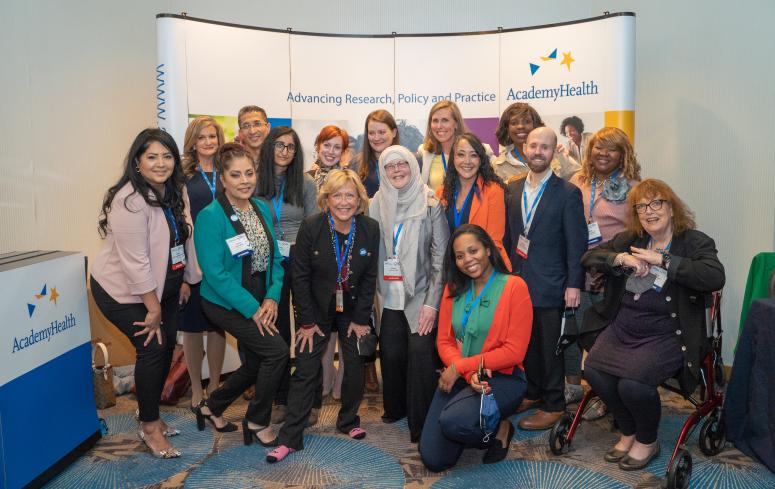
On January 30th, 2023 The Biden Administration announced that the national public health emergency declarations, in response to the coronavirus outbreak in the U.S., would come to an end on May 11, 2023. The National Emergency Concerning the Novel Coronavirus Disease (COVID-19) Outbreak declaration went into effect in March 2020, providing modifications or waivers to improve health care accessibility through Medicare, Medicaid, and CHIP programs, in private insurance. Despite these and other measures, health care access, privacy, and cost are still some of the top-of-mind concerns for patients and their care partners begging the question of what happens next with the end of the emergency declarations approaching.
DOBBS & HIPAA
On June 24th, 2022, the Supreme court overturned Roe v. Wade. which established the right to abortion for women in the United States. The decision was overturned by the Dobbs v. Jackson Women's Health Organization. With women making up 52 percent of the population the decision brought forth numerous concerns about women's health access, privacy, and other public health issues. Now, abortion is unavailable in 14 states. This means thousands of women across these states are restricted from accessing abortion care and the laws that govern each state for the patient's privacy are determined by the individual state overriding the Health Information Portability and Accountability Act of 1996 (HIPAA).
HIPAA protects the patient's health information through standardization for health systems, technology vendors, etc. across the United States. Dobbs established the pathway for patients' health information to be disclosed in circumstances related to legal proceedings, court orders, court-ordered warrants, a subpoena, or summons, according to HHS Guidelines. On February 23rd, 2023 the Digital Health Post Dobbs: What Does It Mean panel at Health Datapalooza will debunk the privacy risk to patients and their medical providers and what it could mean for health initiatives.
Health Access & Health Care Costs
1 in ten (23 million) Americans owes medical debt with millions owing more than $10,000, according to KFF. Despite the emergence of the Affordable Care ACT 2010, 1 in 7 people with medical debt says they've been denied access care due to medical debt, based on a 2022 poll by KFF. As of January 2023, up to 38 percent of Americans are delaying care because of not having money to pay for its cost. Black, Latino or Hispanic, and American Indian or Alaska Native people are more likely to be uninsured. Black households are disproportionately impacted by medical debt, 44 percent vs. 22 percent of Whites, according to a brief by NORC at the University of Chicago. In a news report by Democracy Now, patients shared their stories of being sued by the hospitals where they received care before and during the COVID-19 pandemic. The report highlighted the story of Sherel Wilson who shared her frustration with being sued for $100,000 by the hospital where she received surgery. In her outcry to policymakers to recognize the impact of medical debt on patients she said:
Our state officials, listen to the people, to the people that are hurting. See them. See the people that are hurting, that are losing — some of them are losing their livelihoods, but, most of all, their health. And we need to do something about it.
On Thursday, February 23, Craig Kurtzweil will be addressing approaches to reducing health care costs. Data to Improve Health and Reduce cost after COVID-19, a Health Datapalooza session, will dive into a post-pandemic world where technology can improve outcomes and reduce costs.
Mental Health
One in five Americans lives with a mental illness according to the National Institute of Mental Health (NIMH). This public health crisis was illuminated during the COVID-19 pandemic. It highlighted the need for accessible care from a cost, and service delivery standpoint for marginalized groups. In addition to the cost to access mental health services are the issue of health data sharing across stateliness, particularly information sharing between patients and their care teams for patients residing out of their home state. Young people aged 18-25 have the highest prevalence of any mental illness, says NIMH. According to a survey 45 percent of LGBTQ youth seriously considered attempting suicide in the past year. In speaking with a queer young woman facing mental health challenges, she shared that her condition is disruptive to her college experience, barriers she indicated were having to travel from one state to another for a prescription refill and mental health visits. Could tech, data, or policy resolve this issue? The Tech, Data, and Policy Reaching Marginalized Communities to Deliver Mental Health Services plenary session will discuss mental health issues relating to tech data and policy on February 23rd, 2023.
The 2023 Health Datapalooza will take place February 23-24, 2023 at the Hyatt Regency Crystal City in Arlington, VA with themes including action, data, and policy. Register today.